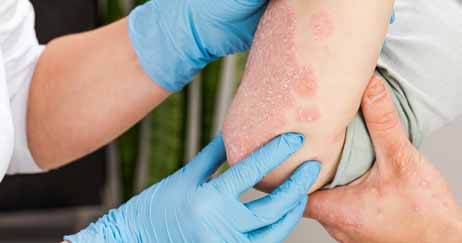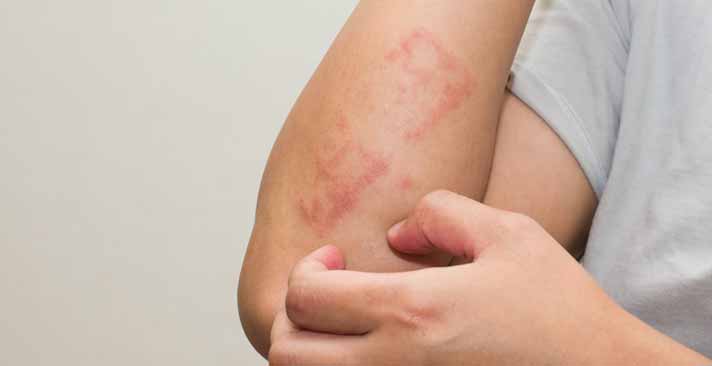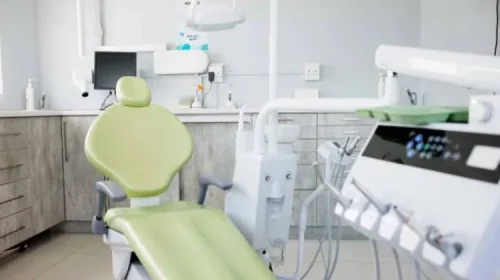Allergic fungal sinusitis, a form of nasal allergy to environmental fungal elements resulting in the formation of allergic mucin and nasal polyps, is a common cause of sinus headache, nasal congestion, nasal discharge and other chronic sinusitis symptoms that do not respond to treatment with antibiotics. Fungal sinusitis is really a spectrum of disease in the nose and sinuses, ranging from the innocuous to the seriously invasive. Allergic fungal sinusitis falls somewhere in the middle, causing sufficient morbidity while not being invasive.
Allergic fungal sinusitis affects immunocompetent individuals or people having a healthy immune status, unlike invasive fungal sinusitis. Allergic rhinitis and asthma may be trigger factors for this condition. Many studies report that about 5 to 10 % of patients suffering from chronic sinusitis symptoms may actually be having allergic fungal sinusitis, while the Mayo Clinic estimates the percentage to be much higher.
Fungi that commonly cause allergic fungal sinusitis are Bipolaris, Curvularia, Drechslera, Alternarium and Aspergillus.
How Allergic Fungal Sinusitis Develops

It is thought to progress similar to aspergillosis of the lungs. When the sinuses of an atopic individual are first exposed to the fungal elements in respired air, the body mounts an immune or allergic response that results in edema in the sinus tissues. This leads to the opening of the sinus becoming blocked and secretions getting collected within the sinus cavity. This forms the basis for the development of chronic sinusitis, know more.
The obstruction to outflow from the sinuses leads to fungal proliferation and the collection of fungi and allergic mucin within the sinuses. Nasal polyps, benign grape-like masses in the nose, develop as part of the tissue response to this allergic stimulus.
Symptoms and Complications of Allergic Fungal Sinusitis:
Allergic fungal sinusitis may cause:
- Headache
- Nasal obstruction
- Nasal discharge – thick and purulent
- Nasal congestion or stuffiness
- Postnasal drip
- Facial pain sometimes
- Cough
- Symptoms of allergic rhinitis like sneezing and a runny nose
Another characteristic feature is the failure to respond to routine chronic sinusitis treatment. Many of these patients are diagnosed to have allergic rhinitis and prescribed corticosteroid nasal sprays. Such patients typically show improvement initially, only to experience the same symptoms as soon as the treatment is completed.
Allergic fungal sinusitis does not usually lead to serious complications as it is not invasive. But it can sometimes erode bone by chronic pressure and involve the eye, giving rise to symptoms like proptosis (where the eye bulges out of its socket) and entrapment of the eye muscle.
Diagnosis and Treatment of Allergic Fungal Sinusitis

The condition is diagnosed by nasal endoscopy, CT scan and blood tests which show eosinophilia and raised IgE levels. Immunologic tests may have to be performed to detect the allergens involved.
The treatment of allergic fungal sinusitis is primarily surgical. Antifungal drugs are not used in the treatment of this condition as the fungi do not invade the sinus tissue. Functional endoscopic sinus surgery is performed with the aim of removing fungal elements triggering the allergic reaction, allergic mucin and polyps from the affected sinuses.
Endoscopic surgery also strives to achieve good aeration of the sinuses as poor ventilation is one the factors predisposing to fungal sinusitis. With endoscopic sinus surgery, simultaneous correction of anatomical factors that promote chronic sinusitis can also be performed.
The use of topical corticosteroids in the form of nasal sprays following surgery helps reduce inflammation. Nasal washes or nasal douches with saline help prevent crusting post operatively. Many patients respond well to immunotherapy. Long term follow up may be necessary as recurrences sometimes occur.




